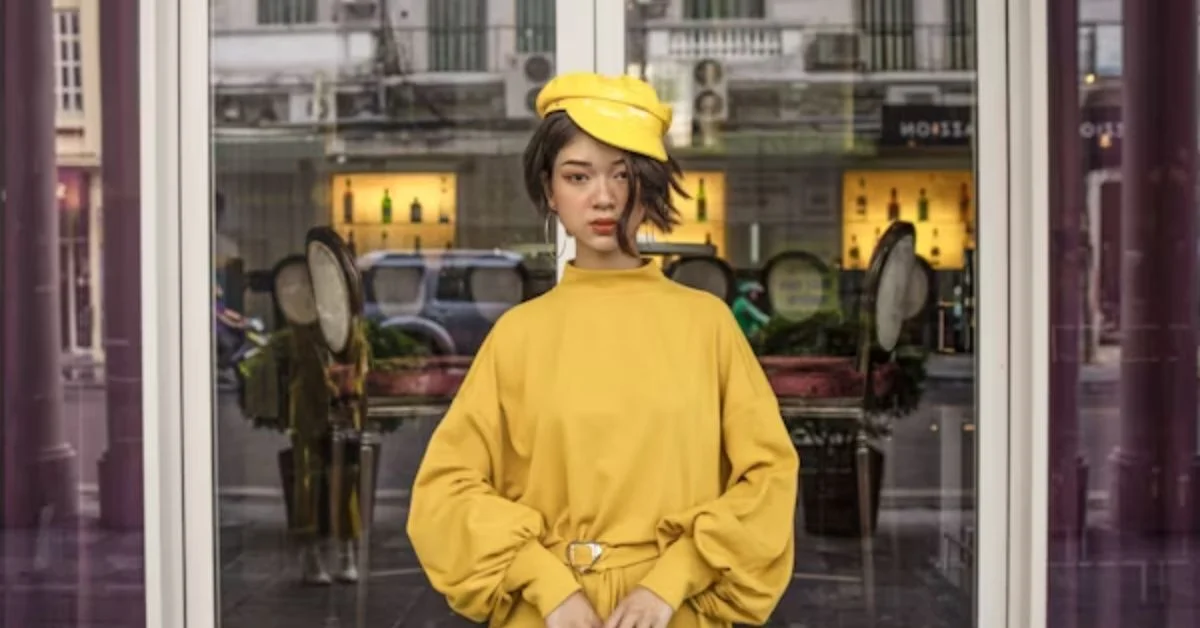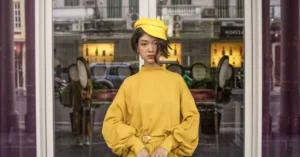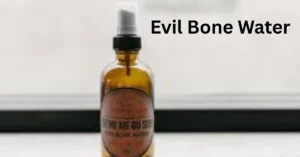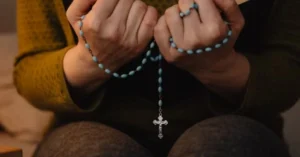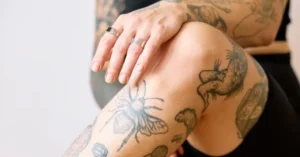Fashion has always been an evolving industry, shaped by cultural shifts, consumer preferences, and innovative design. Among the countless names making waves in modern apparel, Rue Porter stands out as a brand and manufacturer that blends premium streetwear aesthetics with wholesale accessibility. For many, Rue Porter represents more than just clothing; it embodies the rise of luxury-inspired wholesale streetwear that prioritizes fabric quality, modern fit, and long-term wearability.
In this detailed guide, we will explore everything there is to know about Rue Porter: the brand identity, what sets it apart in the wholesale fashion market, the details of its clothing line, how it aligns with sustainability trends, its influence on emerging brands, and how buyers can evaluate whether Rue Porter is the right choice for their business or wardrobe. The discussion will also include comparisons, tables, and frequently asked questions to provide clarity on this brand’s place in the fashion ecosystem.
Understanding Rue Porter’s Identity
At its core, Rue Porter positions itself as a premium wholesale clothing supplier, focused primarily on streetwear-inspired essentials. Unlike fast-fashion wholesalers who prioritize quantity over quality, Rue Porter aims to strike a balance between accessible bulk pricing and high-end craftsmanship.
The brand’s ethos revolves around:
- Minimalist Streetwear Aesthetic: Rue Porter leans toward clean silhouettes, muted tones, and subtle branding, making its pieces versatile for both consumers and resellers.
- Luxury-Level Fabrication: Heavyweight cotton, French terry, and premium fleece are used to give the garments a designer feel.
- Wholesale Accessibility: Rue Porter sells in bulk, catering to startups, independent labels, and established fashion brands seeking premium blanks.
- European Craftsmanship: Unlike many wholesalers that outsource cheaply, Rue Porter emphasizes European-made apparel, enhancing its appeal to brands targeting luxury-conscious markets.
This identity places Rue Porter in a niche where quality-driven wholesale intersects with modern streetwear culture.
Why Rue Porter Appeals to Brands and Consumers Alike
Streetwear has long been associated with exclusivity, limited drops, and hype culture. Rue Porter challenges this norm by offering wholesale products that still feel exclusive because of their elevated quality and timeless style.
For Brands
- Private Labeling: Startups and small businesses can source premium blanks and build their collections without huge manufacturing investments.
- Consistency: Maintaining uniform quality and fit is easier when sourcing from Rue Porter.
- European Sourcing Advantage: Fashion brands benefit from garments that are manufactured under strict European quality and labor standards.
For Consumers
- Quality Over Quantity: Pieces from Rue Porter can last longer than cheaper alternatives, reducing wardrobe turnover.
- Elevated Basics: Even without branding, Rue Porter’s garments stand as stylish, minimalist essentials.
- Versatility: Neutral tones and classic fits make them adaptable across multiple styles—from streetwear layering to minimalist chic.
Rue Porter’s Product Range
Although Rue Porter emphasizes quality blanks for wholesale, their catalog generally focuses on wardrobe staples rather than experimental runway pieces. These staples are the building blocks of modern streetwear wardrobes.
| Category | Details |
|---|---|
| T-Shirts | Heavyweight cotton, oversized fits, drop shoulders, and pre-shrunk fabrics. |
| Hoodies | French terry and fleece, boxy fits, durable stitching, ribbed cuffs. |
| Sweatshirts | Crewneck, minimalist design, thick fabric for structure. |
| Joggers & Pants | Tapered fits, premium elastic, adjustable drawstrings. |
| Shorts | Streetwear-inspired lounge shorts with reinforced seams. |
| Accessories | Limited, but may include beanies, hats, and branded tags for resellers. |
These items are deliberately minimal and brandable, enabling businesses to print or embroider logos while maintaining a luxury feel.
The Fabric and Construction Standards
One of Rue Porter’s strongest selling points is fabric weight and durability. Their garments often use heavier GSM (grams per square meter) fabrics compared to typical wholesale blanks.
For example:
| Garment Type | Average GSM in Market | Rue Porter GSM | Impact |
|---|---|---|---|
| T-Shirts | 160–180 GSM | 240–260 GSM | Feels more structured, premium touch |
| Hoodies | 250–300 GSM | 400+ GSM | Heavier, luxury-grade streetwear fit |
| Sweatshirts | 220–260 GSM | 380–420 GSM | Longer-lasting, more designer appeal |
This attention to weight, stitching quality, and fit consistency positions Rue Porter as a top choice for businesses that want to build a brand on strong foundations rather than cheap fast-fashion blanks.
Wholesale vs. Retail Dynamics
Unlike typical fashion brands that sell directly to consumers, Rue Porter’s business model emphasizes wholesale relationships. This means clothing is sold in bulk quantities, often with discounts for higher volumes. However, many small brands also buy Rue Porter products for direct resale under their own label, known as private labeling.
| Aspect | Wholesale Approach (Rue Porter) | Retail Fashion Brands |
|---|---|---|
| Target Buyer | Startups, resellers, independent labels | End consumers |
| Minimum Orders | Varies, often bulk-based | Individual units |
| Price Point | Lower per unit (bulk pricing) | Higher retail markups |
| Flexibility | Customizable, blanks for printing/branding | Limited to brand’s design |
This wholesale-retail intersection makes Rue Porter particularly appealing in the entrepreneurial fashion scene, where many small labels emerge using premium blanks as their canvas.
Rue Porter in the Context of Streetwear
Streetwear has transformed from underground skate culture into a global luxury movement. Brands like Supreme, Off-White, and Fear of God have popularized oversized cuts, heavyweight fabrics, and minimalist color palettes. Rue Porter taps into these same aesthetics but delivers them at wholesale prices.
This positioning allows smaller fashion labels to:
- Offer garments that feel “designer-grade” without massive production budgets.
- Compete with established streetwear brands by focusing on design and branding rather than raw garment manufacturing.
- Build collections faster, as the blanks are already aligned with current fashion trends.
The Role of Sustainability in Rue Porter’s Brand
Modern consumers increasingly demand sustainable fashion. Rue Porter leans on European-made products and higher quality materials that inherently support sustainability. By producing durable clothing, they encourage slow fashion—garments that last longer and reduce the need for constant replacements.
Key sustainable aspects include:
- Durable Construction: Longer garment lifespan reduces waste.
- Local European Manufacturing: Helps reduce carbon footprint compared to overseas shipping.
- Fabric Quality: Premium cotton often requires fewer replacements compared to cheaper alternatives.
Challenges and Criticisms
While Rue Porter has built a reputation for premium wholesale fashion, challenges exist:
- Limited Catalog Diversity: Their focus is on essentials, which may limit brands seeking more unique silhouettes.
- Higher Entry Cost: Compared to cheaper wholesalers, Rue- Porter’s bulk prices are more expensive, though justified by quality.
- Availability: Popular items often sell out quickly, making it challenging for smaller labels to secure stock.
Tips for Brands Considering Rue- Porter
If you’re an emerging fashion entrepreneur, sourcing from Rue- Porter can be a game-changer, but it requires strategy.
- Start with Core Essentials: T-shirts, hoodies, and sweatshirts are safest for launching.
- Focus on Branding: Since the garments are minimal, your design and storytelling will differentiate you.
- Understand Your Market: Rue- Porter appeals most to customers who appreciate premium streetwear.
- Plan Inventory in Advance: Stock moves quickly; anticipate reorders.
- Leverage Sustainability: Use Rue- Porter’s quality and ethical sourcing as part of your brand narrative.
Comparison with Other Wholesale Brands
| Brand | Focus | Strength | Weakness |
|---|---|---|---|
| Rue- Porter | Premium streetwear blanks | Luxury-grade fabrics, European manufacturing | Limited product range |
| Bella + Canvas | Fashion blanks, retail-focused | Soft fabrics, U.S. production | Not as heavy-duty as Rue- Porter |
| Gildan | Budget wholesale basics | Affordable, widely available | Lower quality, fast-fashion feel |
| AS Colour | Contemporary blanks | Consistent quality, trendy | Less heavyweight than Rue- Porter |
The Future of Rue Porter
As fashion trends continue shifting toward sustainability and quality, Rue- Porter’s positioning is strong. With more small brands seeking to launch premium collections, Rue- Porter is likely to expand its influence by:
- Introducing wider product ranges like jackets, accessories, and layering pieces.
- Strengthening sustainable credentials by adopting organic cotton or recycled fabrics.
- Enhancing global distribution networks to meet rising international demand.
Frequently Asked Questions (FAQs)
Q1: What makes Rue- Porter different from other wholesalers?
Rue- Porter emphasizes premium streetwear blanks with luxury-level fabric quality and European manufacturing, setting it apart from mass-market wholesalers.
Q2: Can small fashion startups buy from Rue- Porter?
Yes, many independent labels and startups source their first collections from Rue- Porter because of its wholesale model.
Q3: Are Rue- Porter garments sustainable?
While not entirely labeled as eco-certified, Rue- Porter’s focus on durable, European-made clothing contributes to slow fashion sustainability.
Q4: Is Rue- Porter expensive compared to other wholesalers?
Per unit, Rue- Porter is more expensive than budget wholesalers, but its premium quality justifies the higher price point.
Q5: Does Rue Porter sell directly to individual consumers?
Primarily, Rue Porter operates as a wholesale supplier. Some consumers may access items indirectly through brands that re-label and sell them.
For more information, click here.

